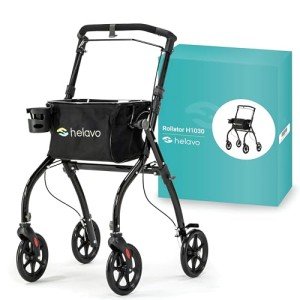A Comprehensive Guide to Medical Walkers: Enhancing Mobility and Independence
In the realm of health care, mobility plays an important function in rehabilitation and total well-being, particularly for seniors and those recovering from injuries. Among the myriad of mobility help readily available today, medical walkers stand out as versatile tools that assist in motion and boost self-reliance. This post will look into the types, advantages, factors to consider, and FAQs concerning medical walkers.
What is a Medical Walker?
A medical walker, frequently described as a walking frame, is a helpful device developed to help people with mobility obstacles walk with higher stability and ease. Walkers supply a broader base of support compared to walking sticks and crutches, making them perfect for those with balance problems or limited strength.
Kinds Of Medical Walkers
| Type | Description | Features |
|---|---|---|
| Standard Walker | A standard four-legged frame without wheels, utilized primarily for stability. | Lightweight, sturdy, adjustable height, appropriate for indoor and outdoor use. |
| Wheeled Walker (Rollator) | A walker with wheels on the front legs, permitting easier motion. | Geared up with hand brakes, a seat for resting, and storage choices. |
| Hemi Walker | A walker designed for individuals who can use one arm and need support. | Lightweight and compact, features a curved manage for simpler gripping. |
| Bariatric Walker | Designed for larger people, providing increased weight capacity and stability. | Improved durability, larger frame, and encouraging features for much heavier users. |
| Knee Walker | A distinct choice for those with leg injuries, allowing them to rest the knee. | A platform to support the hurt leg, guiding capabilities, and brakes. |
Advantages of Using a Medical Walker
- Enhanced Stability: Walkers supply additional points of contact with the ground, resulting in a more stable walking experience.
- Increased Independence: Users can browse their environment without requiring assistance, enhancing self-confidence and self-reliance.
- Improved Safety: The danger of falls is significantly lowered, as walkers offer support to those with balance issues.
- Versatile Usage: Many walkers are designed for both indoor and outdoor usage, adapting to numerous terrains.
- Assistance throughout Rehabilitation: Medical walkers are important during healing from surgeries, injuries, or health problems.
Considerations When Choosing a Medical Walker
When picking a medical walker, various aspects need to be remembered:
| Consideration | Description |
|---|---|
| User's Condition | Evaluate the person's strength, coordination, and specific requirements. |
| Devices Weight | Make sure the walker is lightweight enough for easy handling however strong enough for support. |
| Adjustable Height | The walker ought to be adjustable to fit the user's height for optimal comfort and performance. |
| Hand Grip Comfort | Inspect that the grips are comfortable to hold for extended periods. |
| Weight Capacity | Make sure the walker can support the user's weight, especially for bariatric walkers. |
| Storage Needs | Figure out if extra features like baskets or trays are needed for bring items. |
Regularly Asked Questions (FAQs)
- How do I determine if I need a walker?If Transport Walker experience difficulty in preserving balance, feel unstable walking, or require assistance on flat surface areas or inclines, it's recommended to speak with a healthcare expert for an assessment. Can I utilize a walker outdoors?Yes, specially created
- walkers with bigger wheels(wheeled walkers or rollators)are appropriate for outdoor usage and can deal with different surfaces effectively. How do I keep my walker?Regularly check the walker for loose parts, make sure wheels are lubricated if
- appropriate, and tidy it as required. Seek advice from
the manufacturer's standards for particular upkeep directions. Are walkers covered by insurance?Many insurance plans offer protection for walkers, however it is necessary to check with your service provider to comprehend your particular policy - information. Can a walker aid with physical therapy?Yes, utilizing
a walker can support rehab efforts by providing stability during exercises suggested by physiotherapists. Medical walkers are indispensable tools that not - only assist in motion and independence however likewise substantially improve the quality of life for people facing mobility difficulties. With numerous types readily available, picking the right walker is
vital to satisfying specific needs. The journey to regaining mobility can be daunting, but with the best devices and support, individuals can overcome barriers and recover their self-reliance. By understanding the kinds of walkers, their advantages, and important considerations, users can make educated choices-- causing a more secure, more positive method of moving through life. Whether it's a rollator for outdoor adventures or a simple walker for indoor navigation, the best walker can open doors to newly found flexibility and improvement in daily life.

